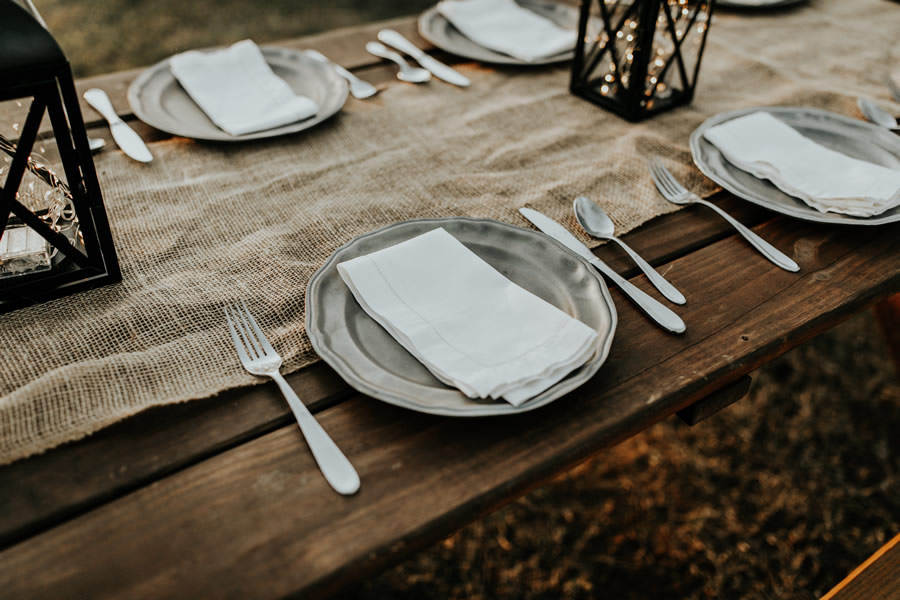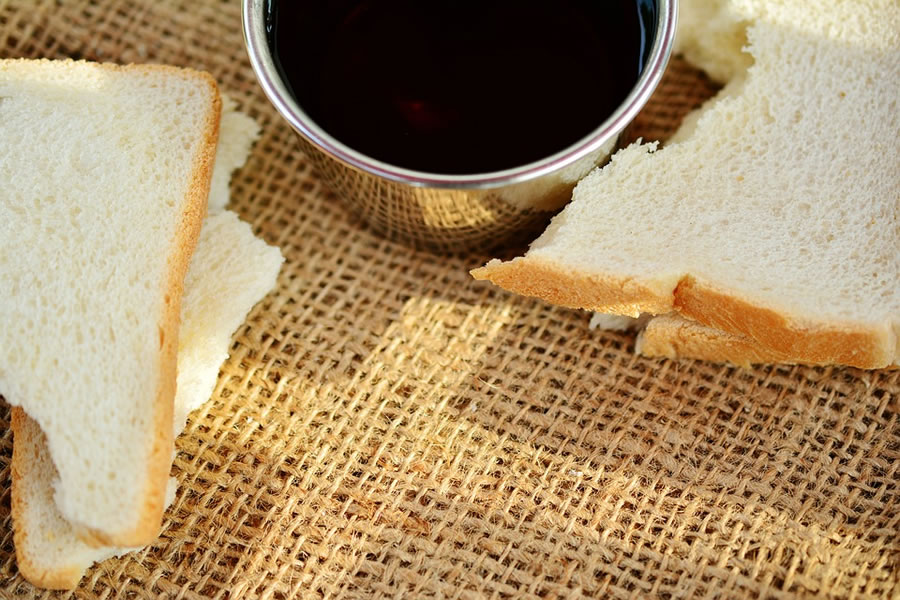St. Francis of Assisi Weekly Reflections

Master, to whom shall we go?
08-26-2018Weekly ReflectionWe Celebrate Worship Resource, Vol. 43, No. 3For the last three weeks we have heard Jesus explain that he is the Bread of Life. Hearing "Unless you eat the flesh of the Son of Man and drink his blood" and "For my flesh is true food, and my blood is true drink" was challenging, to say the least (John 6:53, 55). Now it is decision time. Can all his disciples accept this? No. Not just one, not just a few, but "many of his disciples returned to their former way of life and no longer accompanied him" (John 6:66). This is shocking. These are his disciples. These are people who have accepted and followed him through his teachings, healing, and miracles. This was not the response Joshua received when he gathered all the tribes of Israel and forced the people to take a stand. They all joined Joshua and his household in pledging to continue to serve the Lord. But such is not the case with Jesus. So then he addresses just the Twelve: "Do you also want to leave?" (John 6:67). Peter, speaking on behalf of all the apostles, answers: Where can we go? We do believe. You are the One. The Twelve have committed.
Are you ready to take a stand? Even if it means disagreeing with others, will you stand up for what you believe?
READ MORE21st Sunday of Ordinary Time
08-26-2018Question of the WeekReading I: Joshua 24:1-2a, 15-17, 18b - Reminder of the divine goodness
Reading II: Ephesians 5:21-32 or 5:2a, 25-32—Christian wives and husbands
Gospel: John 6:60-69 - Effect of the bread of life discourse
Key Passage: This is a great mystery, and I am applying it to Christ and the church. Each of you, however, should love his wife as himself, and a wife should respect her husband. (Ephesians 5:32–33)
Adults: In what way has the example of Christian marriage (your own or that of another couple) helped you understand the relationship between Christ and his church?
Kids: What can you do for your family to show them Jesus' love and care?
READ MORECathedra
08-26-2018Liturgy CornerFr. Paul Turner © 2005 Resource Publications, Inc.The cathedra is the chair at the cathedral where the bishop sits when he presides for worship. The word "cathedral" comes from the world "cathedra".
The cathedra is reserved seating. Only the diocesan bishop may sit there. If another bishop presides for worship, he sits elsewhere unless the diocesan bishop permits him to use the cathedra. Everyone else sits in other chairs. Whenever a priest presides for Mass at the cathedral, he sits in a different presider's chair and not the cathedra. If other bishops are present for a cathedral service at which the diocesan bishop presides, they sit in other chairs. No other seating should attract so much attention that people might confuse it with the cathedra.
READ MORE20th Sunday of Ordinary Time
08-19-2018Question of the WeekReading I: Proverbs 9:1-6 - Forsake foolishness
Reading II: Ephesians 5:15-20 - Sing praise to the Lord
Gospel: John 6:41-51 - Discourse on the bread of life, continued
Key Passage: Jesus said, "Those who eat my flesh and drink my blood have eternal life, and I will raise them up on the last day." (John 6:54)
Adults: How does Jesus' promise of eternal life affect the way you live today?
Kids: How often do you think about heaven? Does it make a difference in the choices you make?

You are invted. Will you come and eat?
08-19-2018Weekly ReflectionWe Celebrate Worship Resource, Vol. 43, No. 3We are invited to a banquet today. Will we come and eat? Wisdom invites us first. In Proverbs, Wisdom is a woman who has prepared a meal and calls on everyone to eat and drink. Naturally, since she is Wisdom, this food is knowledge and insight: "Forsake foolishness...advance in the way of understanding" (Proverbs 9:6). Similarly, Saint Paul invites the Christians of Ephesus to live wisely, not foolishly, so that they can "understand what is the will of the Lord" (Ephesians 5:17). He encourages them to sing psalms and play songs, inviting them to "give thanks...in the name of our Lord Jesus Christ to God the Father" (Ephesians 5:20). The word Paul uses for "giving thanks" is eucharisteo, the word we use for the meal we celebrate, the meal Jesus invites us to partake in. Like Wisdom, Jesus does not command in today's Gospel. He invites. He invites everyone to share in his banquet. He is both host and meal. "The one who feeds on me will have life because of me" (John 6:57). We are all invited to consume him. We will then have life. Truly, we give thanks.
How does consuming Jesus in the Eucharist give you life?
READ MOREThe Pallium
08-12-2018Liturgy CornerFr. Paul Turner © 2005 Resource Publications, Inc.The pallium is a special collar worn by metropolitan archbishops over the chasuble at Mass. This narrow white woolen band circles the neck and drops black-tipped pendants down the chest and back. The pallium is decorated with six black crosses and pierced with three decorative pins.
READ MORE
Jesus’ sacrifice feeds us and gives us Strength
08-12-2018Weekly ReflectionWe Celebrate Worship Resource, Vol. 43, No. 3God gives us strength for our journeys. Elijah is a great example. As prophets are wont to do, Elijah as angered the authorities. He flees into the desert to escape the king, but is quickly overwhelmed and despairs, praying for death. The angel of the Lord cares for him, giving him food and water and prodding him to continue. Through God's generosity, Elijah is strengthened in body and strengthened in resolve, able to complete his pilgrimage. God 's most generous gift, of course, is Jesus, God's only Son, who speaks in similar terms in the Gospel: "I am the living bread that came down from heaven; whoever eats this bread will live forever" (John 6:51). Jesus, the Bread of Life, gives us the ultimate gift—his life—strengthening us for our ultimate journey. Life is difficult, so we need that strength, as Saint Paul well knows. Paul implores the Ephesians to imitate God in the way we treat one another. Like Christ, we are encouraged to live lives of self-sacrifice.
What do you most need strength for your journey? Do you pray for strength in times of need?
READ MORE19th Sunday of Ordinary Time
08-12-2018Question of the WeekReading I: 1 Kings 19:4-8 - Elijah's flight to Horeb
Reading II: Ephesians 4:30—5:2 - Vices to be avoided
Gospel: John 6:41-51 - Discourse on the bread of life, continued
Key Passage: Jesus said, "I am the living bread that came down from heaven. Whoever eats of this bread will live forever; and the bread that I will give for the life of the world is my flesh." (John 6:51)
Adults: When has the bread of life given you the strength you needed to face a difficult situation in your life?
Kids: What will you ask Jesus to help you with when you receive Holy Communion this week?
READ MOREThe Cinture
08-05-2018Liturgy CornerFr. Paul Turner © 2002 Resource Publications, Inc.The cincture is a rope worn around the waist of a liturgical minister wearing an alb. (An alb is the long white vestment that covers the minster from neck to ankle.) The cincture functions like a belt. It is sometimes called a girdle, but because that word refers to another type of garment in English, it is rarely used. The cincture is not the same as the fascia, a wide belt worn over a cassock.
READ MORE
I am the Bread of Life
08-05-2018Weekly ReflectionWe Celebrate Worship Resource, Vol. 43, No. 3We hunger. Today’s readings point to that basic human need in all its meanings. In the first reading, the Israelites are so hungry that they tell Moses they’d rather have remained in slavery when at least they had food to eat. Seeing nothing but desert around them, they were convinced they would starve to death. But God provided food—manna and quail—that would sustain them on their journey. Moreover, God provided hope. In giving sustenance to them in their desperation, God restored hope to a people who needed a reason to go on. Last week we saw Jesus feed more than five thousand people with five loaves and two fish. But today we hear Jesus say, “Do not work for food that perishes but for the food that endures for eternal life” (John 6:27). Naturally, the crowd wants this magic food. Then Jesus reveals its source: “I am the bread of life; whoever comes to me will never hunger, and whoever believes in me will never thirst” (John 6:35). Now it is apparent that Jesus is not just addressing our physical hunger. He gives our lives sustenance, gives our lives hope, gives our lives meaning. In short, Jesus gives our lives life.
What gives your life meaning? In what ways is God the source?
READ MORE18th Sunday of Ordinary Time
08-05-2018Question of the WeekReading I: Exodus 16:2-4, 12-15 - Manna in the desert
Reading II: Ephesians 4:17, 20-24 - Renewal in Christ
Gospel: John 6:24-35 - Discourse on the bread of life
Key Passage: So they said to Jesus, "What sign are you going to give us then, so that we may see it and believe you? What work are you performing?" (John 6:30)
Adults: When has your faith helped you believe without "seeing signs" from God?
Kids: Who helps you believe in things you cannot see?